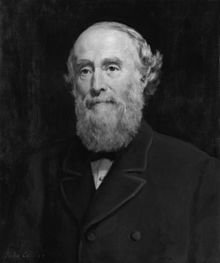The Genesis: George Williams and the Birth of the YMCA
The mid-19th century London was a city of stark contrasts, marked by rapid industrialization and urbanization that brought with it significant socio-economic challenges. Amid the squalor and moral decay that plagued the burgeoning metropolis, the need for a sanctuary became increasingly evident. It was within this context that George Williams emerged as a pivotal figure, driven by a profound desire to offer hope and stability to young men navigating the rough urban landscape.
George Williams, born in 1821 in a rural farming family in Somerset, moved to London at the age of 20. Employed as a draper’s assistant, Williams was acutely aware of the moral and physical pitfalls faced by young men living in the city. This awareness, coupled with his deep Christian faith, propelled him to establish a refuge that would shield these men from the adverse conditions of urban life. On June 6, 1844, Williams and eleven of his associates founded the Young Men’s Christian Association (YMCA), marking the official formation of the YMCA.
The primary mission of the YMCA, as articulated by George Williams, was to create “a safe haven from the temptations of life on the streets.” The organization aimed to foster the spiritual, mental, and physical well-being of its members through a variety of activities. By promoting Christian values, it sought to instill a sense of moral integrity and community. This vision was encapsulated in Williams’ own words: “We must look after the spiritual welfare of young men thrown into the whirlpool of modern life.”
The YMCA’s early efforts included Bible study groups, prayer meetings, and educational classes, reflecting its commitment to holistic development. Physical activities and social events were also integral to its programming, providing a balanced approach to personal growth. These initiatives were not only innovative but also transformative, setting a precedent for future youth organizations.
For those interested in a deeper exploration of the YMCA’s origins, primary sources such as George Williams’ writings, contemporary accounts, and historical documents are invaluable. Online archives and historical repositories offer a wealth of information, providing a comprehensive understanding of the institution’s foundational years.
Global Expansion and Community Impact: The YMCA’s Legacy
The YMCA’s journey from its modest beginnings in London on June 6, 1844, to becoming a globally influential nonprofit organization is a testament to its enduring mission and adaptability. Initially conceived as a safe haven for young men during a period of industrial upheaval, the YMCA quickly garnered international attention. By 1851, the organization had spread to North America, with the first U.S. branch opening in Boston. The expansion continued rapidly, with branches established in Canada, Australia, and across Europe by the late 19th century.
Significant milestones marked the YMCA’s global growth. In 1855, the first World Conference of YMCAs was held in Paris, establishing a unified mission and promoting international collaboration. Influential figures such as George Williams, the founder, and Sir George Williams, his cousin, played crucial roles in these formative years, leveraging their vision and leadership to guide the organization through periods of rapid change and expansion.
The YMCA’s adaptability has been key to its success. Over the decades, it has evolved to meet the changing needs of communities worldwide. During the World Wars, the YMCA provided support to soldiers and refugees, adapting its programs to focus on relief efforts and rehabilitation. Post-war, the organization expanded its focus to include youth development, promoting physical education, and fostering community building. In modern times, the YMCA has embraced initiatives such as global education, health and wellness programs, and disaster relief efforts.
The impact of the YMCA is evident through its extensive reach and the testimonials of those it has served. With over 64 million beneficiaries annually across 120 countries, the organization’s influence is profound. Statistical data underscores its success: for instance, in 2020 alone, the YMCA provided nearly 500,000 youth with employment training and placed 150,000 individuals in permanent housing. Testimonials from beneficiaries further highlight the transformative power of YMCA programs, often citing personal growth, community engagement, and improved well-being as direct outcomes.
Modern-day initiatives continue to reflect the YMCA’s commitment to its core mission. Programs now address contemporary issues such as digital literacy, mental health, and climate change. Despite these new challenges, the YMCA’s foundational principles of fostering a healthy spirit, mind, and body remain as relevant today as they were in 1844.

